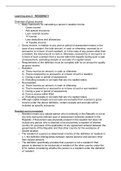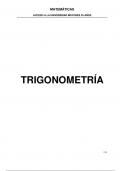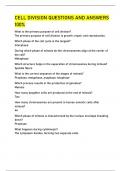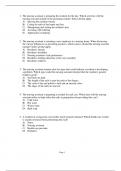Summary
Summary Residency - tax
- Course
- BEL200 (BEL200)
- Institution
- University Of Pretoria (UP)
In-depth notes covering the concept of 'Residency' in tax, one of the most important sections to master as it dictates your understanding of the sections to follow. These notes were made using the lectures and the SILKE textbook.
[Show more]












